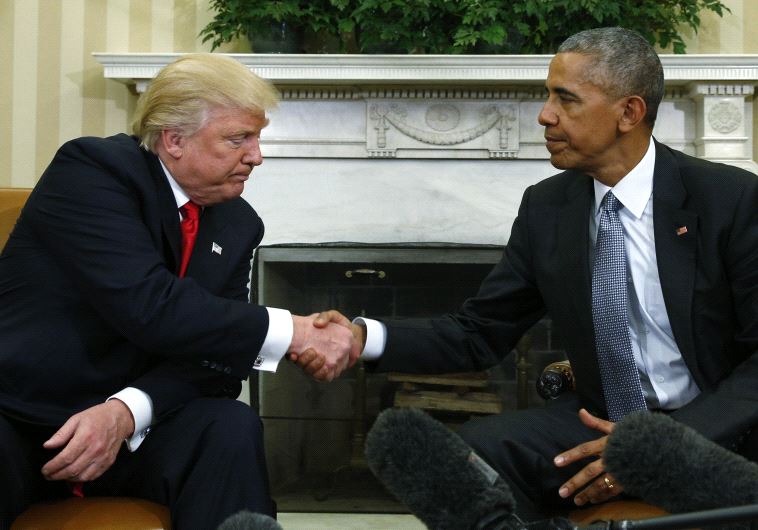President-elect Trump – the ‘West Wing’ lesson
During the time left before he takes office, President-elect Trump should conduct an in-depth study of the many responsibilities that await him.
 U.S. President Obama greets President-elect Trump in the White House Oval Office in Washington(photo credit: KEVIN LAMARQUE/REUTERS)
U.S. President Obama greets President-elect Trump in the White House Oval Office in Washington(photo credit: KEVIN LAMARQUE/REUTERS)